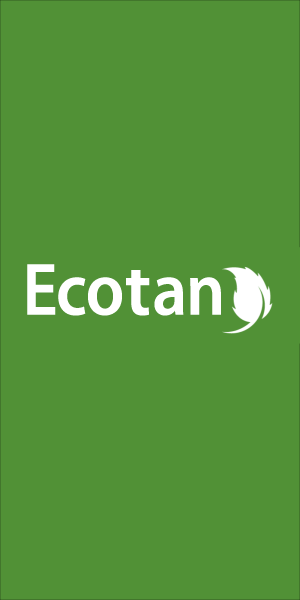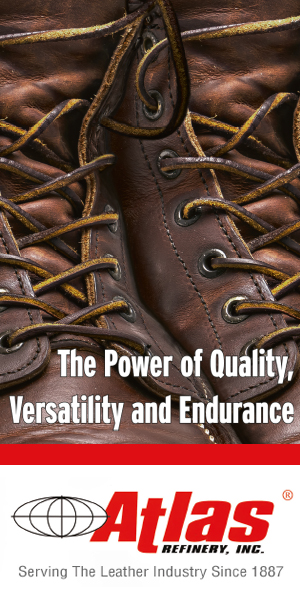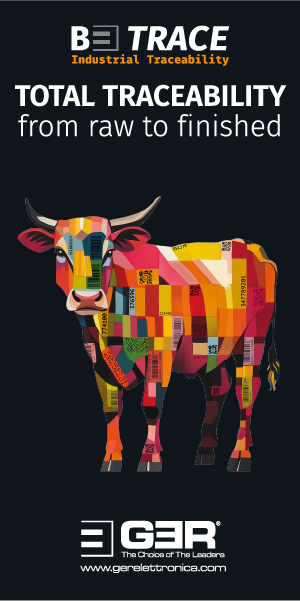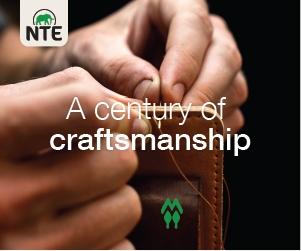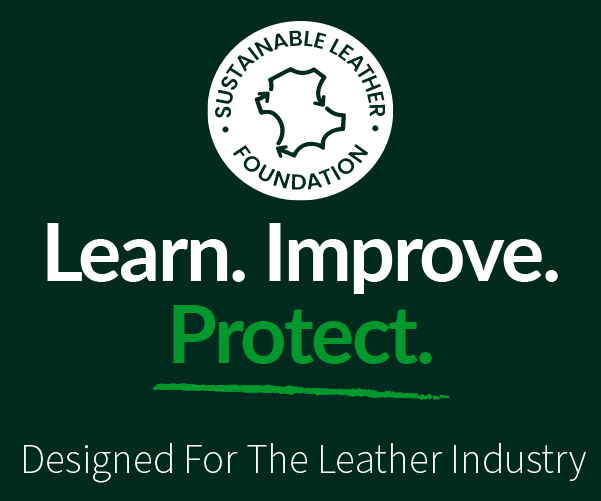For people on the move

Leathergoods entrepreneur Yamila Isaurralde turned her back on a career in industrial engineering to launch Tasche. Tapping into the knowledge and skills of a Tuscany-trained local artisan helped her turn an important corner.
Industrial engineer and entrepreneur Yamila Isaurralde has taken time and care to build up and bring to market her leathergoods brand, Tasche. The company name comes from the German word for bag, but its base is in Arroyo Seco, Santa Fe, Argentina, and Ms Isaurralde’s insistence is that it will make its products locally, sourcing all the vegetable tanned leather it uses from Argentinean tanneries.
Her leathergoods dream was a long time in the making. She qualified as an industrial engineer and had a ten-year career, between 2008 and 2018, in a series of multinational companies, mostly connected to the automotive industry. During this time, she decided to bring a first business idea to life, a designer footwear brand she called Isaury Calzados, launching it in 2012. Devoting evenings and weekends to this project, after a full day’s work, she kept the idea going for years, pausing only to have her first child in 2015.
“The footwear brand was partly a hobby and partly a desire to run my own business,” she says now, “but having a child meant a radical change in my life, as it does for many people, and I decided to go in a different direction.” Her decision was not to give up the hobby and concentrate on the day job, though. By 2018, Ms Isaurralde had turned down two career opportunities at the automotive firm she worked for and stopped making shoes to concentrate instead on turning a new vision into reality.
Parents of small children are on the move a lot, with lots of kit to carry: spare clothes, nappies, wipes, drinks, snacks and toys on top of all the usual tools of daily life such as phones, keys and money. Yamila Isaurralde looked around and felt there was a dearth of stylish, high-quality backpacks and bags for people in this position: people on the move, people like her. “There was hardly anything available worldwide, as far as I could see, not just in Argentina,” she recalls. So she began to work on Tasche, choosing ‘People on the move’ as the brand’s slogan.
The bravest of the brave
Setting the company up was far from an easy decision to make. She explains: “People from other countries often struggle to understand how hard things like this can be in a place with the economic ups and downs and instability that we have. I think it’s always been the case, and it most certainly is the case today, that being an entrepreneur in Argentina is a high-risk activity that is only for the bravest of the brave.”
In March 2023, the country’s official statistics agency, Indec, confirmed that the annual rate of inflation had reached 102.5%. This was the first time since 1991 that the figure has gone beyond 100%, but rates have consistently been high enough to discourage a generation of professionals from embracing entrepreneurship. Ms Isaurralde asked a large number of friends and colleagues to join her in launching her bag brand, but no one would. “Who would walk away from a secure, well paid job in a multinational company that allows you to live a comfortable life?” she asks rhetorically. It is not that Argentina has no entrepreneurs, she insists, just that the business environment is challenging enough to put many professional people off.
Lessons learned
Among the benefits of her initial foray into footwear was the knowledge of leather she acquired and the contacts she built up among people in other small leather-sector companies, as well as among the artisans operating in local workshops. She knew what she wanted to make and knew how she could produce it if she could get the prototyping and modelling right. In parallel, she embarked on a study programme to learn more about setting up and running a business, focusing on weaknesses she felt the Isaury Calzados experience had exposed, and, with the support of her family, launched Tasche in 2021.
Early wins included being able to spend more time with her toddler and to work alongside Sebastián Rodríguez, a childhood friend who had gone into advertising and art directing. He was among the many who turned down a chance to become a business partner at the new brand, but he did agree to work there and immediately set about helping the founder establish an identity strategy for the brand as well as launching its early marketing and communications campaigns and designing the Tasche website.
Another part of those early discussions involved framing the values of the brand. This quickly resulted in a commitment to making the company’s bags in Argentina using materials produced in Argentina. “This is one of the pillars that matter the most to us,” Yamila Isaurralde says. “Governments come and go; some build domestic industry up, some seem to make things worse. For me, as an industrial engineer, it’s important to value what we make here and promote it. It’s a personal thing; I value what we can produce here in Argentina.”
Natural resources
Argentina is home to major tanning groups and leather manufacturers of high renown and they had their pick of the 13.5 million cattle hides produced domestically in 2022, more than France, Italy, Germany and Spain combined. Perhaps, in the early days, a greater test of Tasche’s ‘Made in Argentina’ resolve was securing the leathergoods artisanship it needs to make its bags.
The province of Santa Fe has leathergoods workshops, as Ms Isaurralde had found out years earlier when she began to produce her own shoes. Rosario alone, the province’s biggest city, has several and is only 30 kilometres from her base in Arroyo Seco. But when she began to commission the first Tasche prototypes, she found the divergence between the first bags that came back from the ateliers and the product images she had in her mind (and thought she had transmitted clearly) frustrating. And then something magical happened. At another of the local operators she approached, she found herself in the company of Salvatore Procopio, one of the Rosario-based artisan makers of bags and briefcases, but one with an unusual personal story.
Tuscan traditions
He is one of four brothers from a Rosario family, with ten years between him and the eldest. On leaving school, his oldest brother began working in a local footwear factory. He enjoyed the work very much, and soon set up his own children’s shoe manufacturing operation and offered work to his brothers. Eventually, all four brothers became partners in the business, but in 1975, Salvatore Procopio decided it was time for him to fulfil a lifelong dream and travel to Italy, where the family has its roots. Like millions of people before him, he found the allure of Florence too powerful to resist and decided to try to find work there. A footwear factory was his first thought, but he quickly realised that the Florentine focus is much more on bags.
“I was 24 years old and knew nothing about leathergoods,” he says. “It was a completely different set-up.” There are transferable skills, however, and a local leathergoods atelier soon took the young Argentinean artisan on as part of its leather-cutting team. At first, he concentrated on cutting large pieces for use in briefcases. “Little by little, thanks to my fellow workers, I learned the trade,” he continues. “I got involved in shaping the briefcases, in stitching and so on. I learned mostly by imitating what I saw the others do.”
He continued working and learning in this way until 1986, when he decided to devote himself to design, signing up for a formal training course. This kept him in Italy. In fact, he remained there for 38 years in total, working in leathergoods the whole time and becoming a specialist in moulding and shaping bag designs. He became well known in the Tuscan design community as someone who could look at a drawing of a product idea and create a mould for it. “Designers used to send me these by fax,” he recalls. “That was what counted as advanced technology in those days. And the drawings didn’t always come with measurements. The task was to turn that into a real product, not just creating a mould, but trying it out too. I loved the work.”
Homecoming
On returning to Rosario in 2013, he carried on designing and making bags, but also established a reputation as a good teacher of new generations of leathergoods artisans, an activity that has since taken him to different parts of Argentina.
When Yamila Isaurralde shared her design ideas for Tasche backpacks and bags with Mr Procopio (not by fax), she had a similar experience to that of the Tuscan designers decades before. At last, here was someone who could turn her vision into reality. An initial meeting led quickly to an invitation for the Tasche founder to visit the Procopio workshop and, from that moment, Ms Isaurralde has not looked back. She explains: “We spent the next two years developing Tasche products together, strong Italian coffee on the go and Salvatore teaching me and telling me his thousand and one tales of his life and times in the industry. Salvatore is part of Tasche, too, and I have such happy memories of those times. We still see each other and work together, although at a less intense rhythm these days. I go less often to his workshop but we still meet up once a week, just to catch up, if not for work reasons, and to drink coffee.”
Seal of approval
The fruits of all this include a range of products based on the theme of ‘People on the move’: a tote bag called ‘Whole Day’, a backpack called ‘24/7’, another called ‘Duo’, a clutch bag called ‘Trevelin’ and some small leathergoods. Last year, an agency of Argentina’s economics ministry, the product development and industry secretariat, awarded its ‘Seal of Good Design’ to Tasche. This is a distinction it gives to products that stand out for their innovation, their design quality and their commitment to local sustainable production.
There is a team of five people, comprising two artisans, Sebastián Rodríguez, Ms Isaurralde and another colleague, Florencia Ripoll, and sales are coming in. “We don’t have a big volume of sales yet,” the founder says, “but it is growing and production is increasing to keep pace.” The brand’s clients, so far, tend to be professional people on the move, living in cities, coming and going between home and work, work and the gym, the gym and going out in the evening. Yamila Isaurralde says they are likely to be between the ages of 25 and 60 and likely to identify with the brand’s core values: slow fashion, sustainable manufacturing, local materials, local production and long-lasting products with timeless designs.
She says her sincere hope is that more and more people, in Argentina and beyond, will embrace a commitment to sustainable production and consumption. “I think it’s the only way,” she insists. “We’re certainly going to keep evolving and improving our products to adapt them to this new, circular economy.”
Start-up leathergoods brand Tasche’s commitment to quality and to using local veg-tanned leather and local artisan talent to make its products has earned it the Argentinean government’s ‘Seal of Good Design’.
All credits: Tasche








